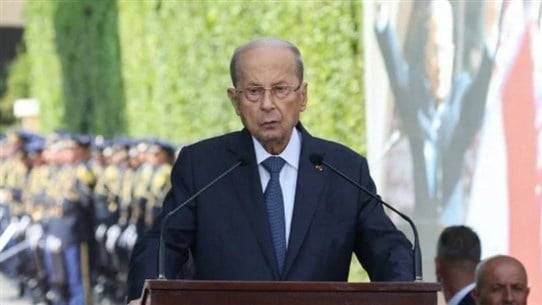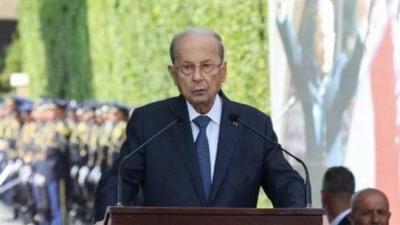The president, or "the general," did it. He signed a decree declaring the government resigned, even though it has been de facto resigned since the parliamentary elections. However, this action initially made it seem like the country was facing a very dire scenario where the vacuum since Tuesday would not be limited to the presidency but also to the executive authority, leaving the Grand Serail vacant like the ministries, similar to the presidential palace. However, this scenario has no place in the constitution, as the continuation of public services is a fundamental constitutional principle governing the operation of institutions in Lebanon, and consequently, there is no vacuum in the constitution.
Now that President Michel Aoun has taken this step and sent a message to the Parliament, what is to be said by constitutionalists? Dr. Paul Marqus, president of the JUSTICIA rights institution, clarified that "it is customary and constitutionally recognized, which has risen to the level of constitutional custom, that whenever the government resigns or is deemed resigned due to certain deadlines like the commencement of a new parliament term, as is our current situation, the president must assign a prime minister based on mandatory parliamentary consultations according to the post-Taif constitution. Thus, after agreeing on the government, he signs three decrees, two of which are signed solely by the president under Article 54 of the constitution, namely the decree naming the new prime minister and the decree accepting the resignation of the government or considering it resigned."
Marqus added in an interview with MTV, "The president issued a decree declaring the government resigned without reaching an agreement on a new government between him and the designated prime minister, issuing only the decree declaring the government resigned without issuing the other two decrees, thereby solidifying the reality that the current government has become resigned due to the commencement of the new parliamentary term. The issuance of this decree alone, without the other two, may cause political confusion; however, it will not change the existing constitutional context, as the decree accepting the government’s resignation or considering it resigned, as per Article 69 of the constitution, is a constitutional imperative. Therefore, this decree is not a constitutive decree but rather a declarative decree, and its effects are limited to announcing the constitutional reality which consists of considering the government already resigned," adding, "Therefore, even though President Aoun opted for this choice, this choice will not have constitutional effect by itself, but it will have a political effect used by politicians opposing the idea of transferring the president's powers after the vacancy to the caretaker government as per Article 62 of the constitution, which they interpret in a way that hinders the transfer of powers. So we expect this to reinforce this political viewpoint more than it creates a new constitutional reality."
Regarding whether Aoun's step has practical implications, Marqus said, "We are at least reassured that there is a rule that governs the avoidance of a vacuum in authority, namely the continued functioning of constitutional public services, meaning that there is no interruption in governance. The essence of the matter is that the expired authority, in this case, the government, must adhere to the minimum necessary governance actions to hand over legitimacy to its successor, nothing more."
So, it is a political bubble that will undoubtedly be exploited in politics, but in reality, the government will continue to carry out its functions, and things will not change much until a new president of the republic is elected.




